Missed the International Youth Day webinar? Here’s what you need to know
This session brought together young voices from Colombia, Ghana, Kenya, and Vietnam to talk about what it really costs to be connected online. Based on research with over 300 young people, it revealed how stigma, poor infrastructure, digital exclusion, and online abuse are blocking access to vital health information and services. The conversation also highlighted the #MakeITSafe campaign, led by young people, to build a future where everyone can access information safely and without discrimination. Over 85 people joined the webinar, including young people, digital health rights advocates, representatives from INGOs, and youth-led organizations and movements.
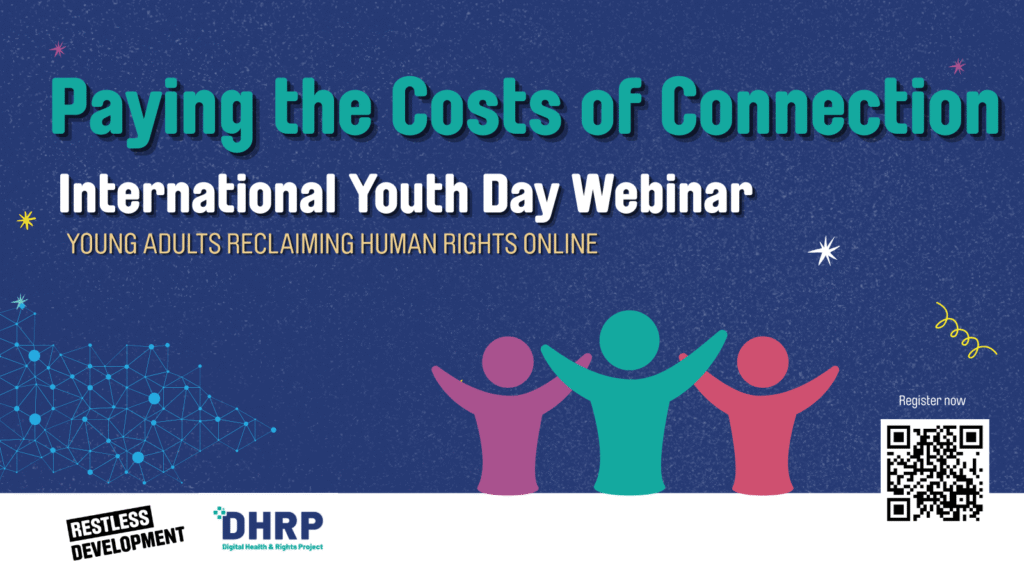
Objectives of the Session
- To share research findings and amplify youth voices from DHRP’s ‘Paying the Costs of Connection’ report with young adults engaged in the research and broader youth networks.
- To facilitate an opportunity for meaningful high-level engagement and advocacy with key global health and human rights stakeholders.
- To demonstrate the power of participatory approaches to research and advocacy, and the importance and value of youth voices in digital governance.
Key Learnings
- Inequality online reflects inequality offline. Rural areas face bigger barriers, poor internet, fewer devices, and higher costs, especially in remote or conflict-affected regions.
- Stigma pushes people out. LGBTQ+ youth, young women, and people living with HIV are often targeted, making them avoid online health spaces and lose access to vital information.
- Online abuse is growing. Blackmail, stalking, and data leaks are common, with weak laws and poor enforcement making it worse.
- Youth-led research works. Young people helped design the research, collect stories, and analyse findings, reaching communities often ignored and creating stronger evidence.
- Rights based policies matter. Protecting privacy, moderating content fairly, and making reporting channels easy to use helps build safer online spaces.
- Mental health is deeply affected. Abuse and exclusion online leave lasting emotional scars, leading to stress, anxiety, and loss of trust in digital spaces.
- Gaps in digital literacy leave youth vulnerable. Many young people lack the skills to spot fake information, protect their data, or respond to online threats.
- Participation builds protection. When youth are part of decisions about online safety, solutions are more relevant, trusted, and effective.
Nothing about us without us. Young adults like myself became owners of the narrative, shaping how we are understood and how solutions are framed.
–Solomon Atuvia, Ghana Community Advisory Team
Recommendations
- Close the connectivity gap. Invest in internet access, affordable devices, and better infrastructure in rural areas.
- Protect personal data. Pass and enforce laws against online violence, require quick removal of harmful content, and keep health and identity data safe.
- Teach digital safety early. Include privacy, security, and online rights in school and community programs.
- Make platforms safer. Tech companies should use youth-friendly terms, privacy-by-default settings, and transparent moderation.
- Listen to young people. Involve youth directly in creating policies, programs, and technology solutions.
- Support mental health. Build safe reporting systems and provide access to counselling for those harmed online.
- Strengthen laws and enforcement. Ensure cybercrime and data protection laws are clear, enforced fairly, and protect vulnerable groups.
- Promote positive online spaces. Support campaigns and community initiatives that spread respectful, inclusive digital behaviour.
Speakers of the session:
Speaker: Diana Abiba Wahab (G-CAT)
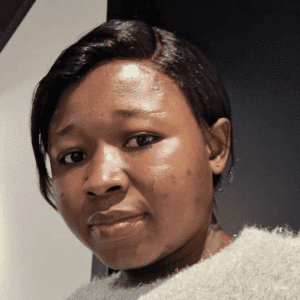
Diana Abiba Wahab is a dedicated social worker, counselor, and human rights advocate with over five years of experience in counseling and four years in social development. She has worked with both government institutions and local and international NGOs to promote the welfare of the aged, persons with disabilities, adolescents, and women. As a counselor, she supports persons living with HIV through psychosocial and adherence counseling. Diana is currently pursuing a BSc in Organizational Development at the College for Community and Organizational Development in Sunyani and is committed to advancing the Digital Health and Rights Project in Ghana.
Speaker: Nguyen Anh Tu (V-CAT)
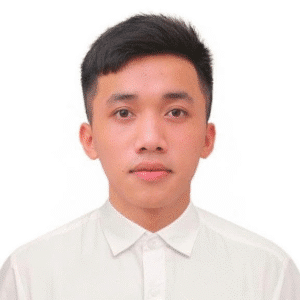
Nguyen Anh Tu has been actively involved in HIV prevention and control since 2019, with a specific focus on young people affected by HIV in Vietnam. Their work encompasses capacity building, education on HIV/AIDS treatment, and efforts to reduce stigma and discrimination. They currently serve as a community representative for people living with HIV on the CCM Vietnam. As the Youth Program Coordinator at VNP+, Tu is responsible for leading various initiatives. These include communication activities, knowledge sharing, and capacity building programs focused on treatment, medication access, and stigma reduction for young people living with HIV in Vietnam.
Speaker: Camilo Restrepo (C-CAT)
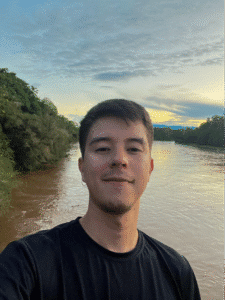
Camilo Restrepo is an Occupational Therapist from the National University of Colombia, proudly from Putumayo, in the southern Andes-Amazon region. He’s involved in LGBTIQ+ and youth-led organizing for peace, territorial rights, and human rights.
His work and passion focus on tackling connectivity barriers in rural areas, closing the digital divide, and rethinking science, technology, and innovation from the ground up — with a strong territorial lens.
Speaker: Enosa Adera (K-CAT)
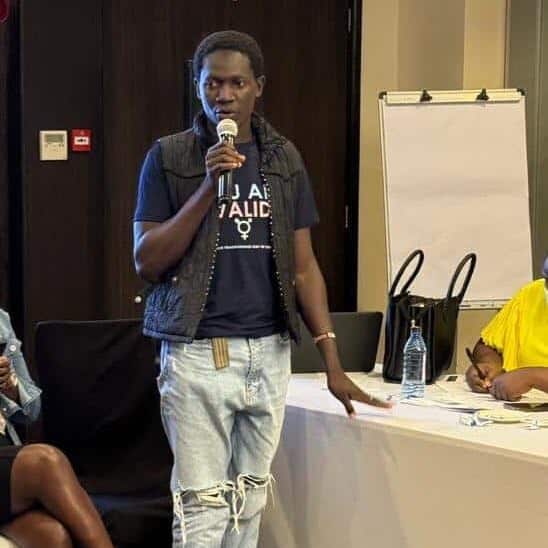
Enosa Adera is a passionate African trans feminist and gender minority human rights defender. For the last 6 years, Adera’s work has concentrated on leveraging sexual and reproductive health rights services for key population movement in Kenya by alleviating stigma and discrimination and also improving healthcare services.
Adera’s activism has centered around creating inclusive societies, awareness and demand creation, building community capacity to demand for services and take control of their freedom and human rights. Adera is also an active member for community Advisory Team for DHRP at KELIN.
Speaker: Solomon Atsuvia (G-CAT)
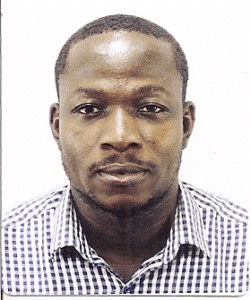
Solomon Atsuvia (he/him) is a lawyer, human rights defender, and global health advocate with extensive experience in rights-based advocacy, legal reform, and inclusive development. He has worked with leading global and local organizations on issues spanning HIV/AIDS, SRHR, climate justice, SOGIESC rights, and digital governance.
A former Programs and Advocacy Manager at Rightify Ghana, Solomon is also a member of Power of Pride’s Community of Practice and an Atlantic Fellow for Social and Economic Equity. He founded Jurisvera to transform the legal system into a tool for dignity and justice for marginalized communities, including LGBTQ+ persons, sex workers, and PLHIV.
Moderator: James Selasi Quarshie (G-CAT)
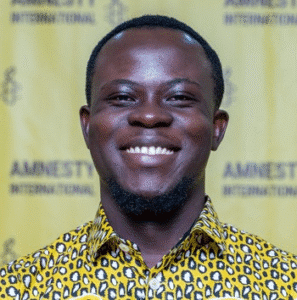
James Selasi Quarshie is a committed human rights and youth advocate, serving as the Human Rights Education & Youth Coordinator at Amnesty International Ghana. An inter-sectional feminist and LGBTQ+ activist, he works to promote inclusion and safe spaces for marginalized communities.
James holds a Master’s in Development Studies from Erasmus University Rotterdam and a BA in Political Science and Philosophy from the University of Ghana, with experience in diplomacy, project management, and international development.
Notetaker: Martin Ame-Nuquaye (G-CAT)

Martin Ame-Nuquaye is a passionate youth health advocate dedicated to advancing SRHR, youth empowerment, and digital health equity. He previously served as the Greater Accra Regional Organising Secretary for Young Health Advocates Ghana and was the focal person for the UNAIDS-led PACT 2.0 initiative. Martin also contributed to developing the Y+ App for young people living with HIV and currently serves on the Community Advisory Team for the Digital Health and Rights Project, promoting inclusive digital health governance.
Stakeholder Dialogue
Teki Akuetteh (Executive Director, Africa Digital Rights HUB)
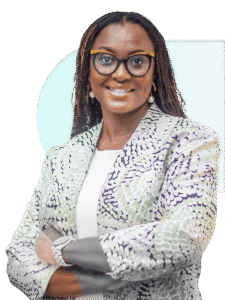
As Ghana’s first Data Protection Commission’s Executive Director, Teki Akuetteh facilitated and implemented the Data Protection Act. She is also a Senior Partner at Nsiah Akuetteh & Co., a law firm based in Accra, Ghana that specialises in information technology and telecommunications law in Africa.
Teki Akuetteh has also served on various international advisory bodies including the Data Governance Committee of the Global Partnership on Artificial Intelligence; Global Privacy Assembly and the Think20 Taskforce on Digital Transformation.
Sharlene Muthuri (Technology & Human Rights Campaigns Officer, Amnesty International Kenya)
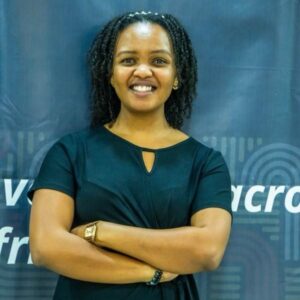
Sharlene Muthuri is a Journalist and Human Rights Campaigner with extensive experience in designing and executing strategic communications campaigns. She is currently serving as a Technology and Human Rights Campaigner at Amnesty International Kenya, where she spearheads impactful digital rights campaigns addressing human rights violations in the digital space.
Her work includes monitoring digital rights developments, coordinating campaigns on data governance, and collaborating with global and local stakeholders to promote awareness of digital rights, especially for marginalized groups. Sharlene has played a key role in developing advocacy toolkits on digital rights in Kenya, as well as pioneering Privacy First, a youth-led digital rights movement for young people in Kenya.
